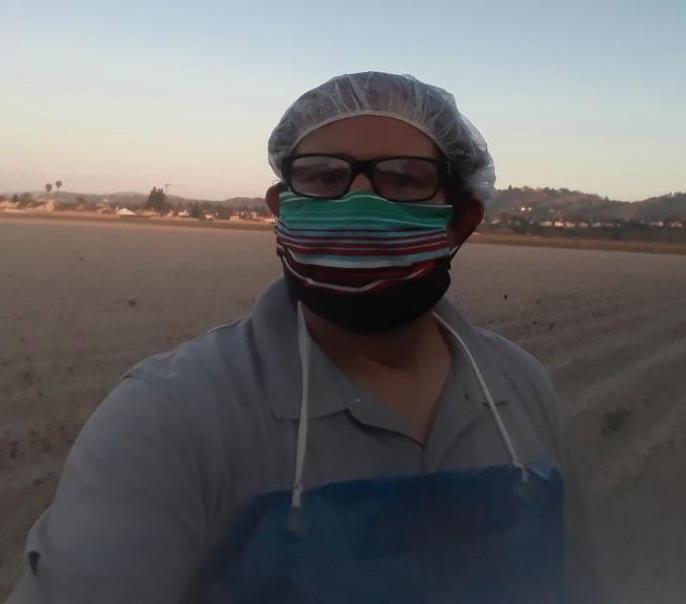They recommend washing with soap, thick peel fruits to prevent the transmission of the pandemic
Guillermo García is an immigrant from El Salvador, who like many essential workers live between the fear of being infected by the coronavirus, and the need not to miss work to be able to meet and face all the expenses at home.
"It is not easy to go out and find a living. You go out and go in fear of working. We live worried about the consequences", He says.
The uneasiness is so great that they even distrust their fellow workers. They do not know if any of them could bring the virus and transmit it to them, causing them to become ill.
For seven years, Guillermo has worked at a packing plant in the city of Oxnard in Ventura County, which employs approximately 40 employees.

‘We bag and pack vegetables like radishes, beets, parsley, and leeks to send to stores.”
His usual day begins at four in the afternoon, and ends at two or three in the morning.
“When we go to work, we help to pack. Then we clean and disinfect the machinery so that the next morning when the other shift comes in, everything is sterilized. ”
When the coronavirus crisis broke out, he says that the cleaning work of the facilities of this packing plant increased.
"There are more reviews to make sure people wash their hands and disinfect them frequently; gloves are changed every so often; walk with your apron and sleeves; and clean boots before entering the plant" The company provides workers with boots, aprons and sleeves. The latter, made of plastic, are a kind of protection that go from the wrist of the hand to the forearm. The United Peasants Union (UFW) has given them masks.

At the beginning of the pandemic, this worker says that production was reduced, and work hours were cut; but in the last two weeks, the hours were normalized.
“As a start, the people supplied a lot of food, and then they didn't buy again for a while. That caused the work to drop. ”
47-year-old Guillermo emigrated from El Salvador 18 years ago. His wife works in the fields. They have three children, one of them is a minor of ten years.
"ANDWe are quite distressed. We don't want to get sick. If one of the two of us stops working, we will not be able to support the home and pay for food, gas, gasoline; and the rent of the house of more than 2,000 dollars ”.
He also trusts that he is distressed that some of his colleagues, due to not taking care of themselves and not wearing face masks and gloves when they leave work in their daily life, are going to get sick from COVID-19.
This – he considers – is not only a threat to the health of all workers. "It also puts our job source at risk because they can even close the plant."

Guillermo returns home at dawn. "I take off my clothes in the bathroom, and I clean myself before I go to sleep."
As an essential worker in a vegetable packaging, he advises everyone not to let their guard down in the face of the pandemic. "We have to wash our hands frequently and disinfect ourselves continuously."
When buying vegetables, she recommends that housewives wash them very well.
“We don't know who touches them when they come out of the packaging and in the supermarket. With this disease, it is better that when the fruits and vegetables enter our home, we wash them again before consuming them. ”
Especially, suggests washing with soap all those thick peel fruits such as mangoes, watermelons, oranges and others.
The opinion has joined the Coalition for the Rights of Immigrants (CHIRLA) to invite you to open the doors of your house this Friday May 1st, International Labor Day, at six in the afternoon and give applause to the workers essentials like Guillermo; Or, post a nightstick on your social networks with the hashtag #PorraDeTrabajadores.






